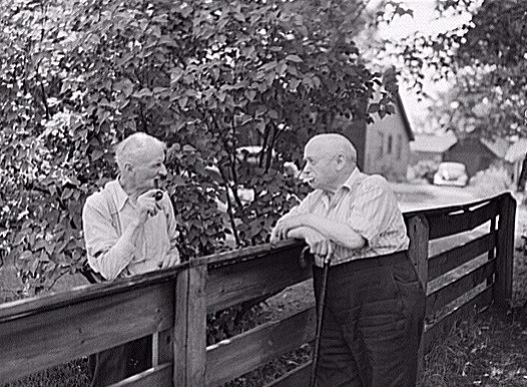If you’re an intentional interim pastor you’ll eventually have to answer the question.
It will come up because you – the deliberate change agent – will challenge your client church to deal with its inexcusable inward focus. Interim pastors provoke congregations to think long and hard about neighbors.
When you ask, “What are you doing to reach the neighbors?”, you’ll likely be met with blank stares. As the question sinks in they’ll soon be asking themselves, “Who are our neighbors anyhow?”
The answer is elusive, more challenging than it first appears.
Why the question then?
When the question was first posed, the interrogator’s purpose was “test” Jesus.
“And behold, a lawyer stood up to put him to the test, saying, “Teacher, what shall I do to inherit eternal life?” (Luke 10:25).
Jesus confirmed that “neighbor love” was a legal requirement.
The litigant sought to limit his responsibility (isn’t it odd that the “tester” became the “tested”?) by narrowing the definition of “neighbor.”
“But he, desiring to justify himself, said to Jesus, ‘And who is my neighbor?'” (Luke 10:29).
The question was asked to limit liability. If he could distinguish neighbors from non-neighbors his legal liability shrinks to manageable size. Too bad for him, because neither linguistics nor the Lord would admit it. “Neighbor” translates the Greek noun plesion. It refers to people who are close proximity.
Why the question now?
Today the question is asked for a different reason.
In most communities the people who live on either side of us or across the street aren’t really neighbors. At least we don’t think of them that way, and in most cases we barely know their names.
Think of the typical workday schedule in your average suburban housing division.
You back the car out of the garage in the morning, pause in the driveway to hit the remote that closes the garage door, back out into the street and drive to work. In the evening you pull into the drive, pause to wait for the garage door to open, park in the garage and walk into the house while the garage door closes.
Rinse and repeat day in and day out.
When people move in across the street you mark the news with a thought of going to welcome them, but your interest soon passes. In time you forget that they are new to the “neighborhood.”
When an interim pastor exhorts a congregation to “reach out” to their neighbors, she’s likely to be met with blank stares. Perhaps even feelings of awkward fear.
How do you “reach out” to people you have no meaningful relationship with? How is that different than buttonholing a complete stranger at the mall with a gospel tract?
Who is their neighbor now?
You’re in the interim pastor. They’re looking to you for change leadership. So lead! Give them help in discovering who their neighbors are so that in time there will be a relationship base on which to build a genuine offer of the gospel.
- The people who live around them. Make it a priority to lead the congregation in prayer for those who live on either side of them. Ask them to pray for opportunities to build or strengthen relationships with the people who live on either side and with the people in the three houses across the street.
- The people in their car pool. Those with school aged children are probably members of a car pool. They take turns with other parents to drive children to school, to sports activities and other venues. These people are “around” all the time, they share common interests – these are “neighbors”.
- Their coworkers. Believe it or not, some people still drive to their place of employment, punch a time clock and work with the same people day after day. Again, these people are “around” or “near by” all the time and they, too, have common interests – these are “neighbors”.
- Are social media “friends” neighbors? I’ve got mixed feelings on this one. You’ll have to follow your gut but there are probably some in your congregation that have close connections with others through social media. How would you reach out to them?
Question
How have you helped church members broaden their view of who their neighbors are? What are some effective ways of reaching these modern categories of “neighbors”? Click here to leave your comment below.




